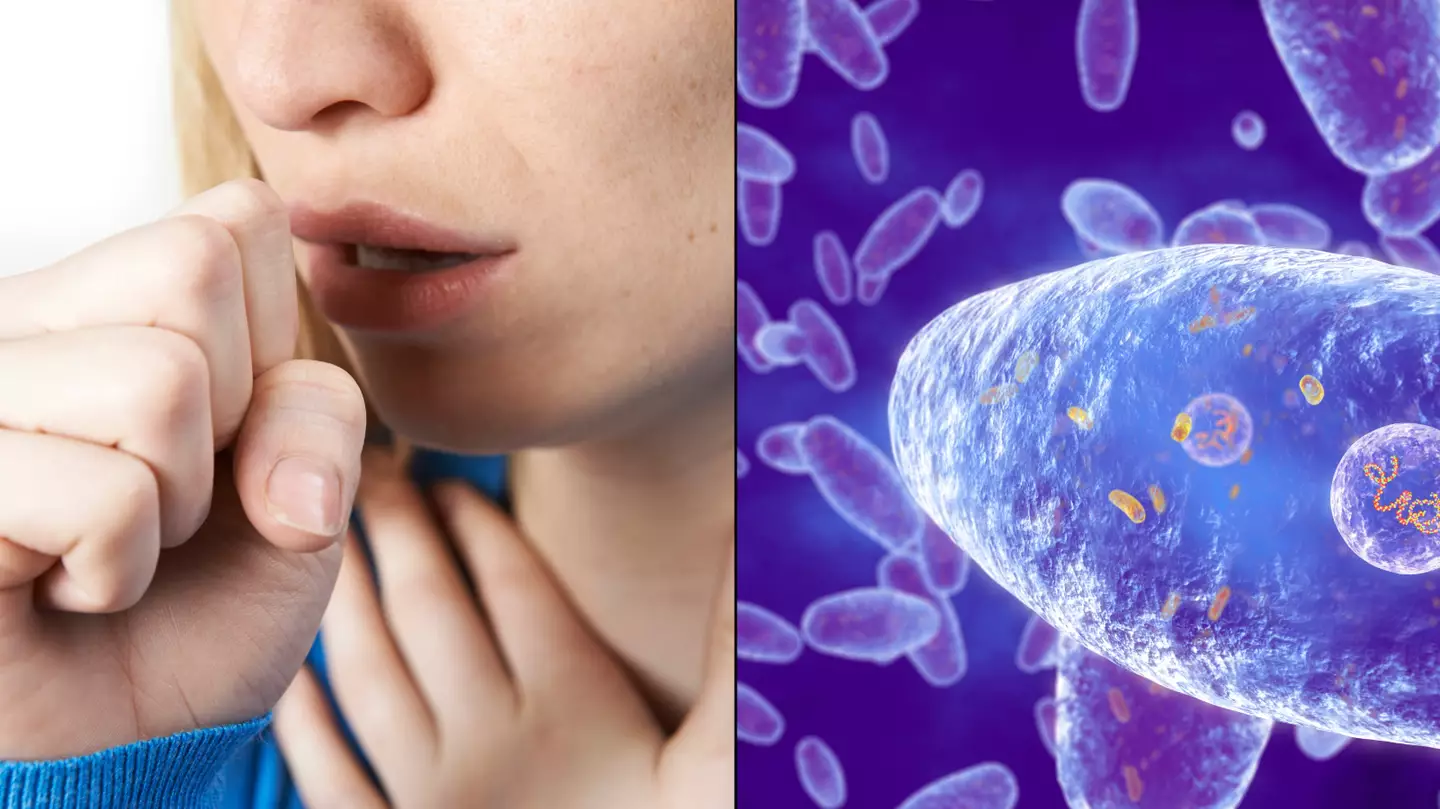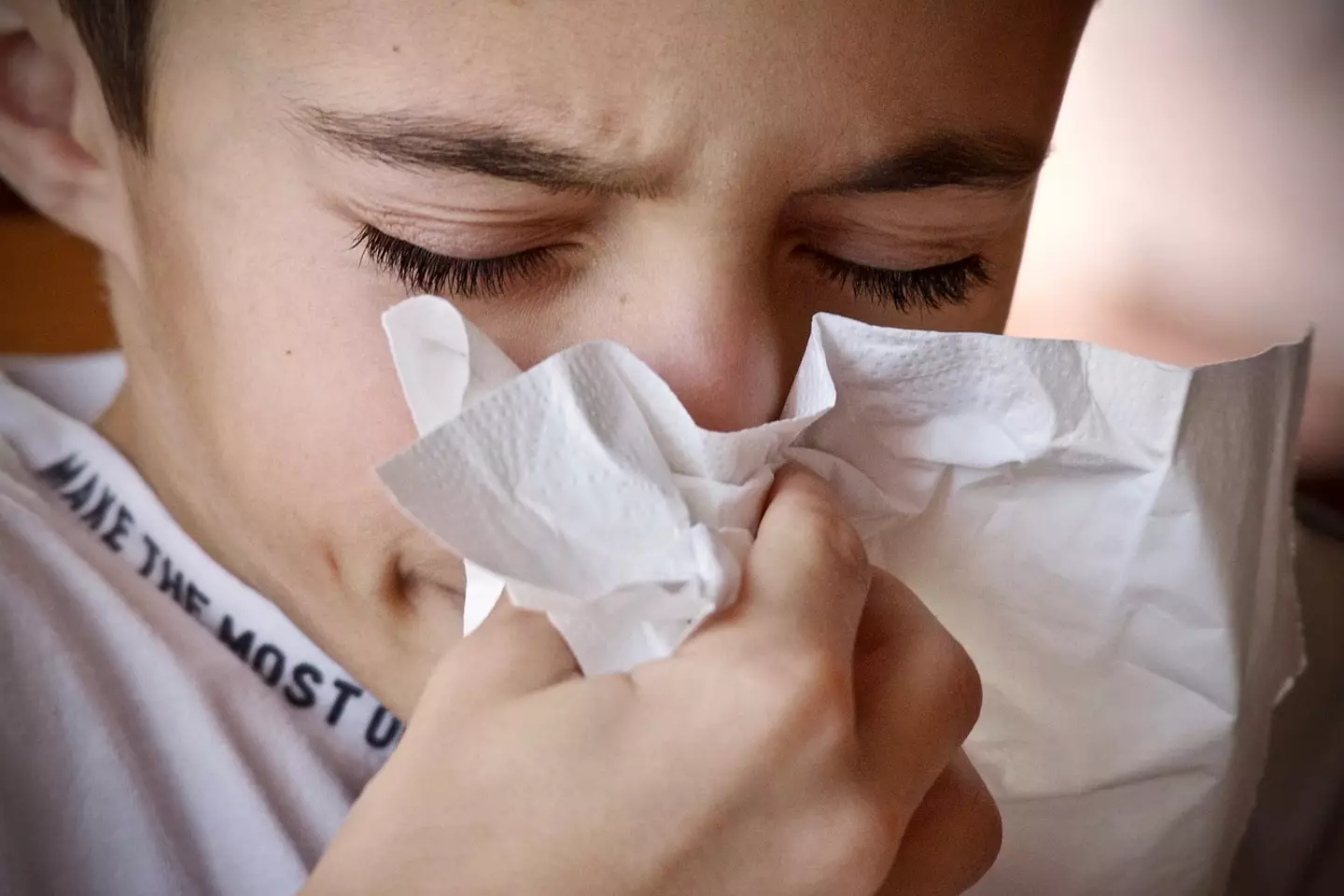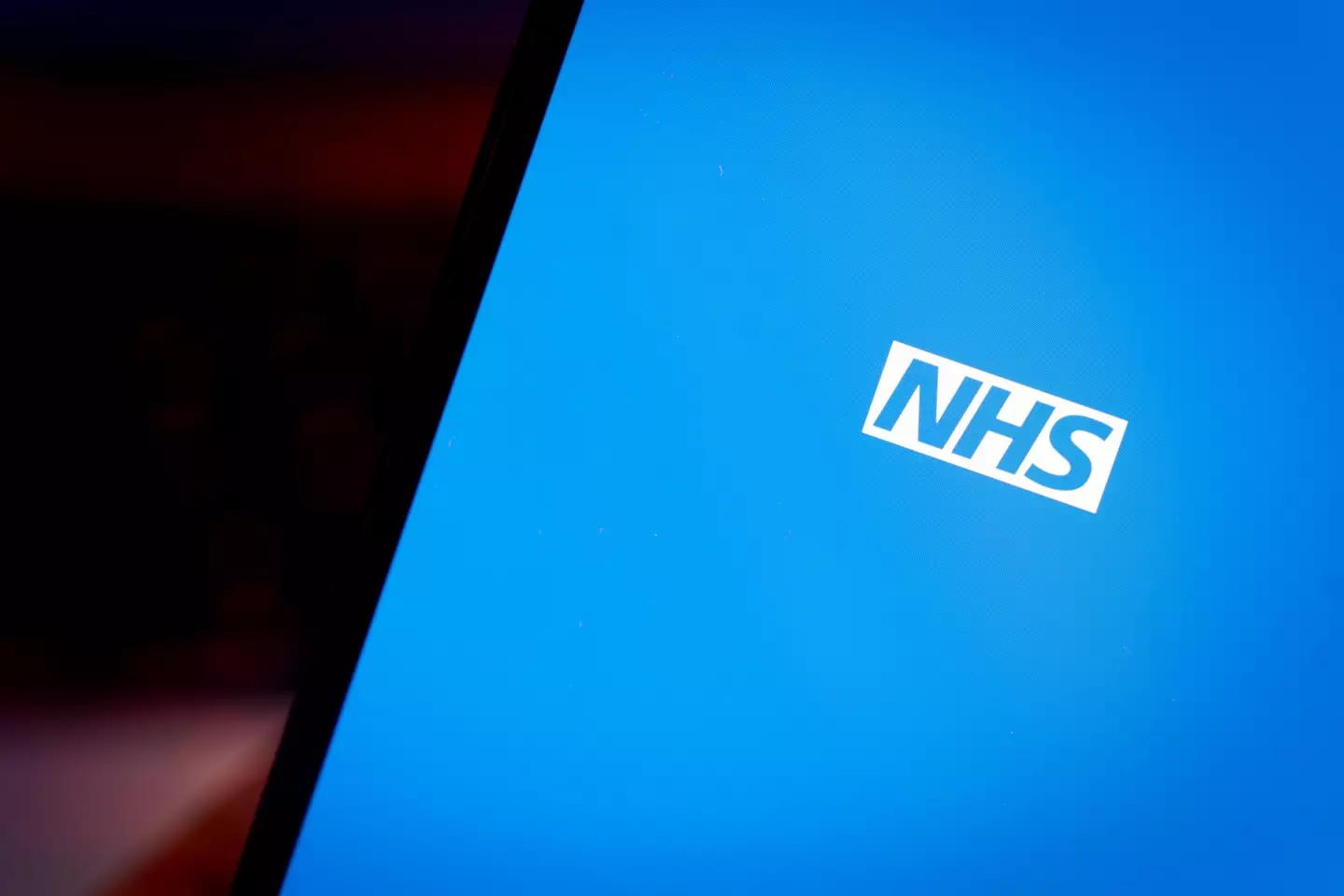
The NHS has issued official guidance in response to the rising cases of whooping cough in the UK.
Whooping cough - also known as the '100 day cough' - is on the rise and the NHS is warning the public to be aware of its symptoms and when to seek treatment.
Given that whopping cough can be easily mistaken for a common cold - especially in the early stages - the NHS is advising parents to look out for symptoms that are lasting longer than usual.
Advert
Between July and November this year, a total of 716 whooping cough cases were reported in the UK - which is 3x more than the same period in 2022.

Whooping cough is a bacterial infection of the lungs and airways. Although less severe for older children and adults, symptoms may still cause problems, such as sore ribs and ear infections.
Younger children and babies face the highest risk of complications during whooping cough, ranging from dehydration to seizures. Therefore, the NHS states the importance of seeking hospital treatment for severe whooping cough or if very young children exhibit symptoms.
The first way to check if your child has whooping cough is to observe their symptoms after about a week of cold-like symptoms. These include:
- coughing bouts that last for a few minutes and are worse at night
- a "whoop" sound, almost a gasp for breath between coughs
- difficulty breathing after a coughing bout and may turn blue or grey
- bringing up a thick mucus, which can cause vomiting
- becoming very red in the face
These symptoms can last up to several weeks or months.

To ease the symptoms, the NHS recommends getting plenty of rest, drinking lots of fluids, and taking paracetamol or ibuprofen to alleviate discomfort.
The NHS explicitly states not to give children any cough medicine if they are showing signs of whooping cough as it 'does not help with this type of cough.'
As whooping cough is highly contagious, the NHS advises sufferers to keep their children out of work, school or nursery until '48 hours after starting antibiotics or 3 weeks after your symptoms started if you've not had antibiotics.'
The contagious stage can last from about 6 days after the start of cold-like symptoms to 3 weeks after the coughing starts.
As an overall guideline, the NHS stresses the importance of getting 'babies and children get vaccinated against it' as it offers the best possible protection against the disease.
